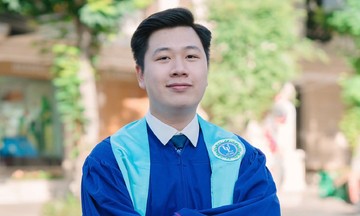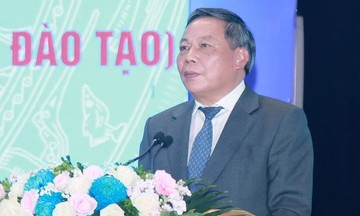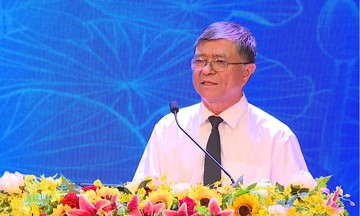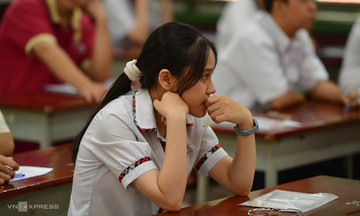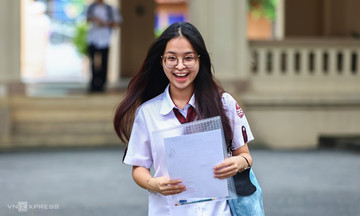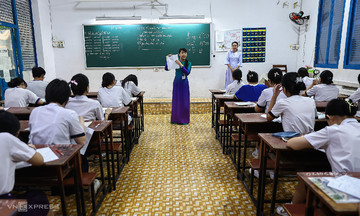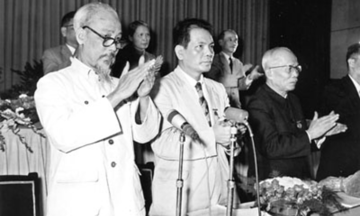This was discussed at a seminar on 1/7 held by the Ministry of Education and Training to gather feedback on the draft amendments to the Higher Education Law.
"The Ministry's policy is to tighten doctoral training," said Deputy Minister Hoang Minh Son.
Specifically, higher education institutions will have autonomy in training within their licensed scope. Programs requiring ministerial approval include: doctoral training; teacher training; health sciences; law; programs commissioned by competent authorities; and programs rectified after suspension due to violations.
Under the current law, universities that meet quality accreditation standards for undergraduate and master's programs can autonomously launch corresponding doctoral programs, except in health sciences, teacher training, national defense, and security.
Deputy Minister Son explained that many universities nationwide offer doctoral programs. The Ministry has received numerous complaints from National Assembly delegates and the public regarding the quality of doctoral training. Therefore, the Ministry sees the need for restructuring to ensure quality control, resulting in fewer institutions authorized to offer doctoral programs.
"The Ministry will personally approve 100% of doctoral programs," the Deputy Minister stated.
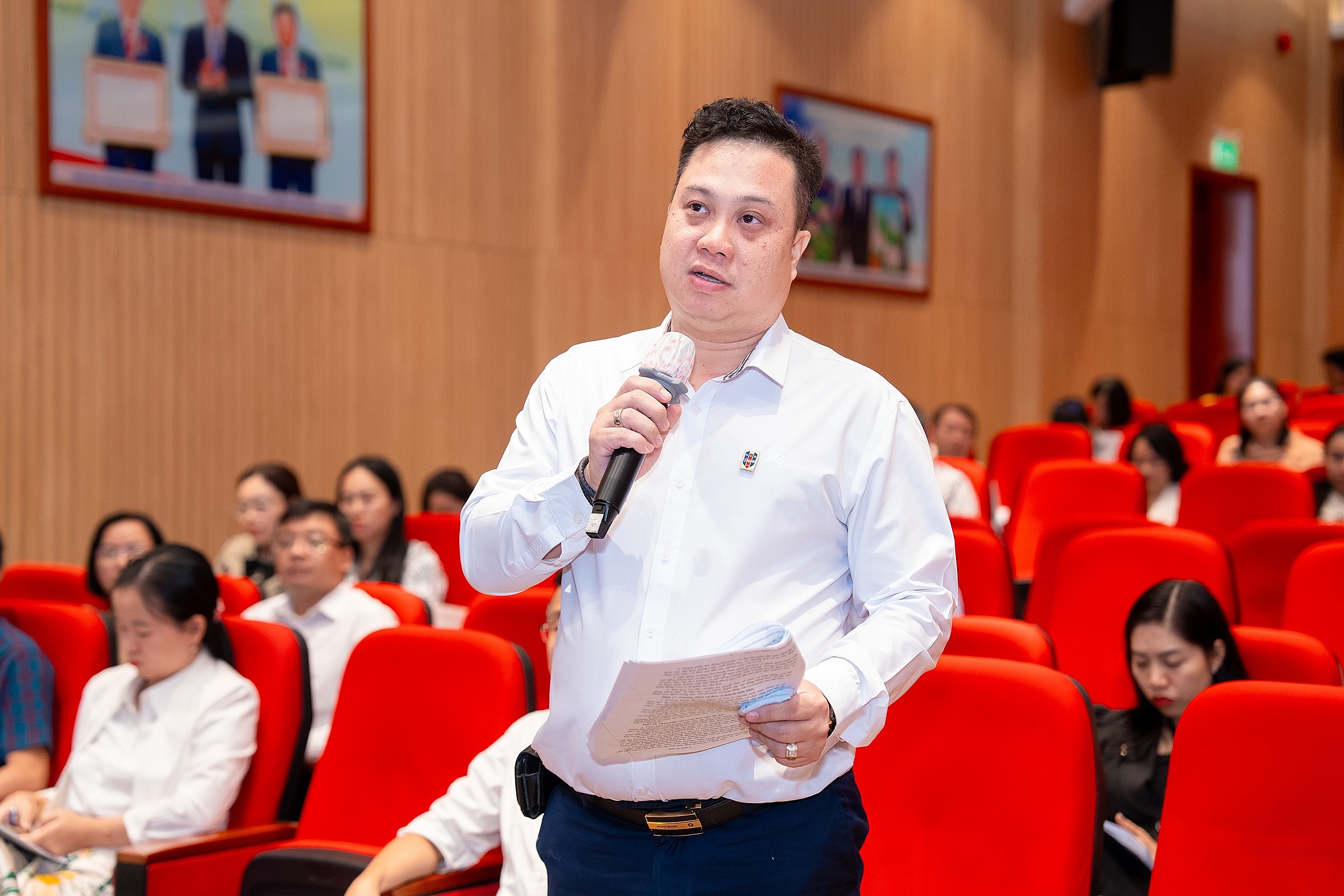 |
Associate Professor Nguyen Duc Trung gives his opinion on the conditions for opening doctoral programs, 1/7. Photo: BTC |
Associate Professor Nguyen Duc Trung gives his opinion on the conditions for opening doctoral programs, 1/7. Photo: BTC
Associate Professor Trinh Quoc Trung, Head of the Postgraduate Training Department at the University of Law, TP HCM, questioned whether previously authorized institutions would need to reapply for doctoral program approval.
Associate Professor Nguyen Duc Trung, Rector of the University of Banking, TP HCM, pointed out inconsistencies in the current process. Traditionally, universities offering master's programs must have existing undergraduate programs. Similarly, doctoral programs require existing master's programs. However, in foreign universities, master's programs often outnumber undergraduate programs, meaning they operate without corresponding lower-level programs.
"If we maintain such rigid regulations, it will be difficult to launch doctoral programs. Waiting 7-8 years to establish each level is too long," said Trung.
Associate Professor Trung suggested the Ministry consider allowing universities to offer master's and doctoral programs provided they meet the requirements for faculty, facilities, and curriculum. This would enable faster training of high-level personnel in emerging fields like AI, semiconductors, and blockchain.
Regarding specific requirements, Deputy Minister Hoang Minh Son said the Ministry will discuss details later, with a general direction of creating "flexible" legal frameworks for universities.
By the end of 2024, nearly 100 of the over 240 universities nationwide offered doctoral programs. Total enrollment ranged from 5,000 to over 7,000 annually between 2019 and 2024.
According to a Ministry report, Vietnam's doctoral training scale is modest compared to regional counterparts. In 2021, Vietnam had around 12,000 doctoral candidates. Proportionally to the population, this figure is less than one-third of Malaysia and Thailand, one-half of Singapore, and approximately one-ninth of the average for the 38 member countries of the Organisation for Economic Co-operation and Development (OECD).
Among approximately 91,300 university lecturers, around 33% hold doctorates. This percentage reaches 50-75% in universities in the UK, US, Malaysia, and Sri Lanka.
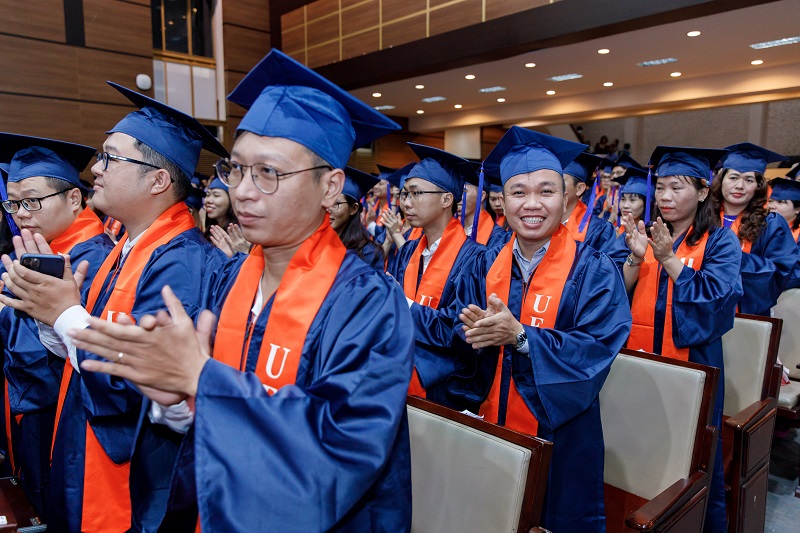 |
Master's and doctoral graduates of the University of Economics, TP HCM, at the 2022 graduation ceremony. Photo: UEH |
Master's and doctoral graduates of the University of Economics, TP HCM, at the 2022 graduation ceremony. Photo: UEH
Le Nguyen



